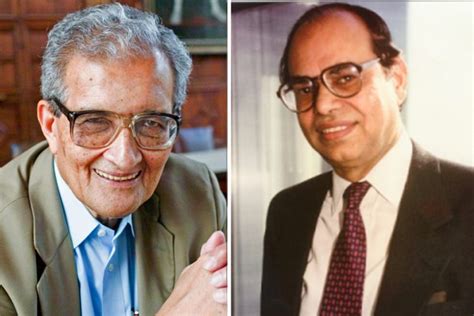A Quote by Jeff Carlson
For hundreds of thousands of years, life was brutal. It still is for a good chunk of the planet. The technology and wealth we enjoy in North America is a very new development in history, and I think we miss the challenges of day-to-day survival in our comparatively easy modern lives. Some people will even create problems if they have none.
Quote Topics
America
Brutal
Challenges
Chunk
Create
Day
Day-To-Day
Development
Easy
Enjoy
Even
Good
History
Hundreds
Hundreds Of Thousands
Life
Lives
Miss
Modern
New
None
North
North America
Our
People
Planet
Problems
Some
Some People
Still
Survival
Technology
Think
Thousands
Thousands Of Years
Very
Wealth
Will
Years
Related Quotes
This is a day when all Americans from every walk of life unite in our resolve for justice and peace. America has stood down enemies before, and we will do so this time. None of us will ever forget this day. Yet, we go forward to defend freedom and all that is good and just in our world. Thank you. Good night, and God bless America.
Most things are forgotten over time. Even the war itself, the life-and-death struggle people went through, is now like something from the distant past. We're so caught up in our everyday lives that events of the past, like ancient stars that have burned out, are no longer in orbit around our minds. There are just too many things we have to think about every day, too many new things we have to learn. New styles, new information, new technology, new terminology ... But still, no matter how much time passes, no matter what takes place in the interim, there are some things we can never assign to oblivion, memories we can never rub away. They remain with us forever, like a touchstone. And for me, what happened in the woods that day is one of these.
How to become a really modern society when today we are so - as a human being, we feel so powerful. We have high technology and a superb way of controlling our life. And at the same time, in many ways we are so primitive. We are not on - even just a step away from the most brutal and primitive crudity. To be very crude on those issues, which is always challenges and we always have to look at the situation like a mirror, to draw some understanding.
I cannot for the life of me understand why the American market keeps going up. Our economy has some real challenges. The infrastructure's falling apart. We're destroying jobs with technology. We are keeping the best and the brightest from around the world from coming to America to create new jobs and create new businesses. All of those things would give you pause to worry about the future.
We will expand and revitalize the popular 287G partnerships, which will help to identify hundreds of thousands of deportable aliens in local jails. That we don`t even know about. This is yet one more area where we are headed in a totally opposite direction. There`s no common sense, there`s no brain power in our administration by our leader, or our leaders. None, none, none!
More than 150 years after Lincoln's Emancipation Proclamation, slavery is illegal almost everywhere. But it is still not abolished - not even here, in the land of the free. On the contrary, there is a cancer of violence, a modern-day slavery growing in America by the day, in the very places where we live and work. It's called human trafficking.
I think that for all of the dangers of technology spreading, I think it is more dangerous in some ways that it doesn't. My simple reason for that is we've got 7 billion people on the planet, and we have these very serious problems, and I think we don't know who's going to have the answers to the problems that are coming around the bend.
Where some people may see loving grandparents, I see a pair of feckless boobs who can't drive, take way too long to shop, and don't even have the most basic grasps on the new technology. As a staunch supporter of the principles of Darwinism, I think that advances in modern medicine are starting to overrule the survival of the fittest, and it's to our [youngers'] detriment.
Our modern world-view tragically misperceives and wrongly defines what it is to be human. We are conditioned by our society to believe happiness comes from pleasure, or from getting things or power over people or money or fame or even health and survival. None of these sometimes very good things can bring ultimate meaning to our lives. We are born to be deeply conscious, inwardly free and deeply capable of love. The longing for these things is the definition of what it means to be human.
Our population and our use of the finite resources of planet Earth are growing exponentially, along with our technical ability to change the environment for good or ill. But our genetic code still carries the selfish and aggressive instincts that were of survival advantage in the past. It will be difficult enough to avoid disaster in the next hundred years, let alone the next thousand or million. Our only chance of long term survival, is not to remain inward looking on planet Earth, but to spread out into space.
The technologies that will be most successful will resonate with human behaviour instead of working against it. In fact, to solve the problems of delivering and assimilating new technology into the workplace, we must look to the way humans act and react. In the last 20 years, US industry has invested more than $1 trillion in technology, but has realised little improvement in the efficiency of its knowledge workers and virtually none in their effectiveness. If we could solve the problems of the assimilation of new technology, the potential would be enormous.


































